Muhammad ibn Abdallah, from the ruling tribe of Quraysh (Koreish), was born in Mecca around 570 A.D. As a young man Muhammad did not learn to read or write but he had an exceptional mind, a great memory, and was able to inspire others through the mastery of words. He was also very analytical and listened attentively to everything the Jews passed on to him.
Muhammad worked as a camel driver where he led many caravans to Persia, Syria, and Egypt to transact business with various merchants. Mecca earned its income as a religious and commercial hub for caravans which journeyed to Arabia annually. During these trips, Muhammad encountered Christians and Jews whom he questioned concerning their religious doctrines. He often frequented the communities of the Jews, not only because they were merchants, but also because they were an indigenous group that was located everywhere.
As a young merchant and later as a promising prophet, Muhammad had far-reaching contact with the dominant Jewish tribes in and around Mecca, which afforded him the opportunity to learn, extract and quote heavily from their religion, and later to mix it with his new religion called Islam. Waraqa bin Naufal who was a priest and cousin to Muhammad’s first wife Khadija, had converted from Judaism to Christianity and was therefore very familiar with the scriptures of both the Jews and the Christians. He and Muhammad became very close friends.
The Arabs in pre-Islamic times were worshippers of the stars, the moon, the sun, 360 idols - one for every day of the year -, and also sacred stones. Mecca was the centre of this stone worship where a square stone structure called the Kaaba was the holiest shrine in the world. The Arabs believed that the first Kaaba was constructed by angels, the second by Adam, the third by Seth his son, the fourth by Abraham and Ishmael his son, the eighth was erected during Muhammad’s lifetime, and the tenth is the present structure in Mecca today.

During that era the Kaaba contained several statutes which represented many sky gods, of which Hubal, the moon-god of Mecca, a tribal god, was the supreme or chief god who was later transformed into Allah. This explains why the half-moon is the symbol of Islam. Along with Allah were his three daughters: al-Lat, al-Uzza, and Manat, who were also worshipped as deities.
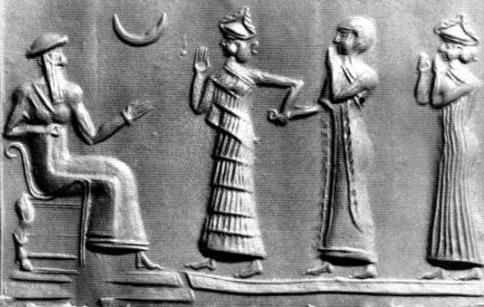 Hubal, the moon god of pre-Islamic Arabia was also known as Molech, Baal, Tammuz - a false Christ and son of Semiramis, who proclaimed that he was the reincarnation of Nimrod. This was the chief god worshipped at the Kaaba during pre-Islamic times and also in Mecca. His statue was in the form of a human believed capable of manipulating feats of divination that involved throwing arrows in front of it, so that questions directed towards it would be answered depending on the direction in which the arrows pointed.
Hubal, the moon god of pre-Islamic Arabia was also known as Molech, Baal, Tammuz - a false Christ and son of Semiramis, who proclaimed that he was the reincarnation of Nimrod. This was the chief god worshipped at the Kaaba during pre-Islamic times and also in Mecca. His statue was in the form of a human believed capable of manipulating feats of divination that involved throwing arrows in front of it, so that questions directed towards it would be answered depending on the direction in which the arrows pointed.
Muhammad became disturbed because of the numerous gods the Arabs worshipped, their loose morality, the constant tribal warfare, and political conflicts. This combination of events prompted him to prepare the groundwork for a new religion which consisted of only one god. Muhammad was also deeply preoccupied with the deplorable conditions of his people, and was eager to lead them away from moral depravity and idol worship, and with lots of time on his hands; he would spend many days in the hills around Mecca in meditation.
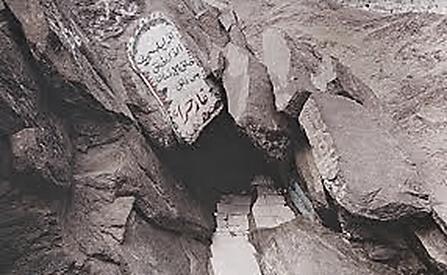 One night during the holy month of Ramadan in 610 A. D. while Muhammad was fasting in a cave located at the top of Mount Hira, it is believed that the angel Gabriel appeared to him with instructions to formulate a new religion to replace the old one. On awakening he proclaimed that he heard a voice saying “O Muhammad, thou art the messenger of Allah, and I am Gabriel.”
Bukhari, Book 1, Volume 1, Hadith 3 states “The angel came to him and asked him to read. The Prophet replied, "I do not know how to read.”
One night during the holy month of Ramadan in 610 A. D. while Muhammad was fasting in a cave located at the top of Mount Hira, it is believed that the angel Gabriel appeared to him with instructions to formulate a new religion to replace the old one. On awakening he proclaimed that he heard a voice saying “O Muhammad, thou art the messenger of Allah, and I am Gabriel.”
Bukhari, Book 1, Volume 1, Hadith 3 states “The angel came to him and asked him to read. The Prophet replied, "I do not know how to read.”
The Prophet added, "The angel caught me (forcefully) and pressed me so hard that I could not bear it any more. He then released me and again asked me to read and I replied, 'I do not know how to read.' Thereupon he caught me again and pressed me a second time till I could not bear it any more. He then released me and again asked me to read but again I replied, 'I do not know how to read (or what shall I read)?' Thereupon he caught me for the third time and pressed me, and then released me and said, 'Read in the name of your Lord, who has created (all that exists) has created man from a clot. Read! And your Lord is the Most Generous." (96.1, 96.2, 96.3) Then Allah's Apostle returned with the Inspiration and with his heart beating severely. Then he went to Khadija bint Khuwailid and said, "Cover me! Cover me!" They covered him till his fear was over and after that he told her everything that had happened and said, "I fear that something may happen to me."
In the earliest biography of Muhammad written about 130 years after his death, Ibn Ishaq recorded that Muhammad at the time believed he might have encountered an evil spirit and was demonically possessed. This possibility had him so unsettled, that on three occasions he attempted to commit suicide by jumping off the side of the mountain, but was prevented each time by someone claiming to be Gabriel.
With the passage of time, Muhammad began to regard himself as the prophet of Allah, and publicly proclaimed himself as such. Thereafter he outlined his new religion to members of his family. His first Muslim convert was his wife Khadijah bint Khuwaylid, followed by his ten year old cousin Ali bin Abu Talib, also his servant and kinsman Abu Bekr, a well-respected man among his tribe who likewise converted five other Meccan leaders that became Muhammad’s six companions. Muhammad then visited the holy temple to preach to the crowds that normally gathered to worship the idols, and with these words, “There is no god but Allah, and Muhammad is the prophet of Allah,” the first stage of the Islamic Revolution was born.
This doctrine is however suggesting that the unchangeable God had reconsidered His salvation plan after sending Gabriel to Mary to announce the birth of His Son Jesus Christ, by changing His mind 600 years later and resending Gabriel, but this time to Muhammad, a non-Israelite prophet, to proclaim a new religion that was to take the place of Christianity, thereby implying that Christ’s redeeming death on the Cross was incomplete and imperfect.
Muhammad put together the foundation of his revolution by undermining and condemning the accepted beliefs and customs while questioning the religious institutions. Relations between the Muslims and the Jewish leaders continued to worsen as they refused to accept the notion that a prophet could emerge from a nation other than Israel.
This fact created a problem for Muhammad as the Quran in Sura 29:27 clearly points out: "And we bestowed on him Isaac and Jacob, and we established the prophet hood and scripture among his seed". In other words, Muhammad cannot be a prophet since one can only come from the seed of Isaac and Jacob, so no other nation outside this line can claim prophet hood.
Moreover, "Abraham", was not in the original Arabic text which the Muslims insist is perfectly preserved, but was added later by Yusuf Ali to make Muhammad qualify for prophet hood.
Since Muhammad was attempting to introduce himself as a prophet in the Biblical line, it would be expected that more Biblical material would be cited, but some of the Quran's stories and details about Biblical characters were adapted from sources other than the Bible, like the Talmud, which was in circulation among the Arabian Jews, with their errors and additions to the Biblical records making their way into the Quran.
Other writings were also extracted from the Zoroastrians of Persia who held a great presence around the Persian Empire long before the birth of Islam. According to historian W. St. Clair Tisdall, “the books of the Zoroastrians and the Hindus writings... bear the most extraordinary likeness to what we find in the Koran and Hadith.”
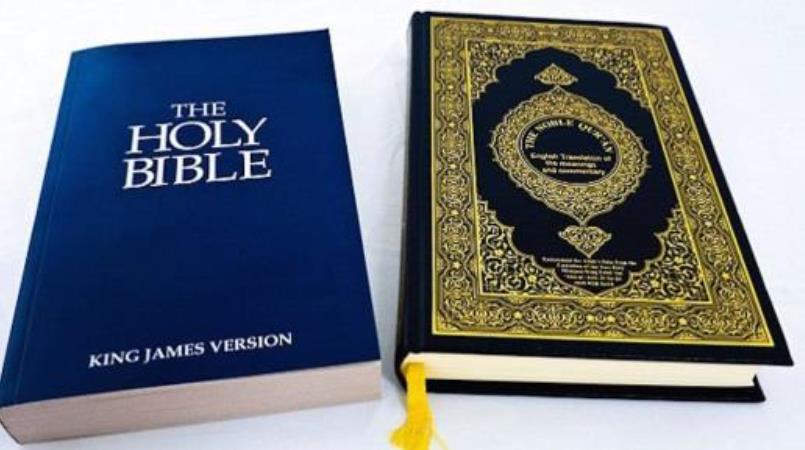
The Quran stands counter to many Biblical doctrines. For example, according to the Quran, Jesus Christ was an ordinary prophet who was neither crucified, nor did He triumph over death by rising from the grave; and, man is saved on the basis of doing more good than evil. Moreover, Islam contradicts everything God declared, bearing in mind that the main results of Islam are constant jihad, the love of cruelty, bloodshed, violence, hatred, beheading, murder, torture, destruction, stoning, kidnapping, slavery, the spread of Islam by brute force, forced marriages, and even the barbaric practice of removing the clitoris and labia of females, then stitching together the edges of the vulva to prevent sexual intercourse.
At the beginning of Muhammad’s prophetic calling, he was deeply inspired and swayed by the Jews, even scheduling himself to be present whenever there were meetings of the Jewish prophets. He modelled his religion as closely as possible to the Jewish religion, and adopted many of the Jewish principles and laws, which explains why many sections of his writings in the Quran run parallel to Bible prophecy. For example, during the first eighteen months after the Muslims had entered Medina, Muhammad had them facing Jerusalem while praying daily; they believed in one God; observed the Jewish fast days; and banned the eating of pork. While the Jewish confession of God’s unity is “Hear oh Israel, the Lord our God the Lord is one,” the rallying cry of the Muhammadan is “There is no god but Allah, and Muhammad is the prophet of Allah.”
Muhammad had also adopted the essential components of the Jewish calendar, the Day of Atonement, the Sabbath, major Bible passages, and articles from the Midrash - which is the classification of rabbinic writings that contained early explanations and notes on the written and oral Torah, as well as non-legalistic rabbinic writings with the Jewish religious laws which usually form a running commentary on specific passages in the Hebrew Scriptures. The purpose of the Midrash was to figure out disputed points in the interpretation of difficult passages of the text of the Hebrew Bible, by using rabbinic principles of hermeneutics, which is the science of Scriptural interpretation that deals with the principles of Biblical analysis, and philology, which is the study of literary texts and written records with their verified meaning and the identification of their authenticity and original form, to bring them in line with the religious and moral values of religious teachers.
Muhammad clearly had great respect for the learned Jews but needed their blessing to sanction his prophetic mission and validate his status, so he tried his best to win them over to his new religion but to no avail, as the Jews were not only unswayable but also resistant to change. Muhammad continued to appeal to the Jews for recognition of his prophetic calling, even writing a letter to the Jews of Khaybar to clarify who he was, and to get their approval to confirm his prophetic status. Local Jews accused Muhammad of idolatry; therefore the great respect he had for them was transformed into such a deep hatred that he turned against them and became their persecutor, since he now considered them to be his rivals.
As relations between the Muslims and the Jews continued to rapidly deteriorate because of their refusal to convert to Islam, Muhammad decided to abandon the idea that they would ever accept him as a prophet, so Muslims were now instructed through a revelation by Allah to stop facing the Holy city of Jerusalem when praying, and to face the city of Mecca instead. Jews pray three times a day facing Jerusalem while Muslims pray five times a day facing Mecca. The Jewish Day of Atonement or fast day was also substituted, and the Jewish Sabbath was changed from Saturday to Friday, which parallels with Christianity where the Sabbath was changed from Saturday to Sunday by the church during the fourth century. An annual pilgrimage to Mecca was also decreed after the Jews disputed Muhammad’s prophetic claims and questioned the truth of his so-called revelations.
After deviating from his original mind-set to solicit the Jews as the authorities on what Allah had revealed, Muhammad chastised them for hiding portions of that revelation. On one occasion he challenged them concerning the befitting punishment for a couple accused of adultery. Muhammad inquired, "What do you find in the Torah, about the legal punishment of Ar-Rajm (stoning)?"
The Jews responded, "We announce their crime and lash them." Muhammad replied, "Woe to you Jews! What has induced you to abandon the judgment of God which you hold in your hands?" Then he stressed: "I am the first to revive the order of God and His Book and to practice it." Muhammad then instructed that the couple be stoned to death. This event not only reveals the clear contrast between Jewish and Islamic thoughts on compassion, but the massive difference between the teaching of Muhammad and that of Jesus’ “He that is without sin among you, let him first cast a stone at her,” a distinction which has shaped Muslim and Christian history, culture, and opinions regarding mercy and justice.
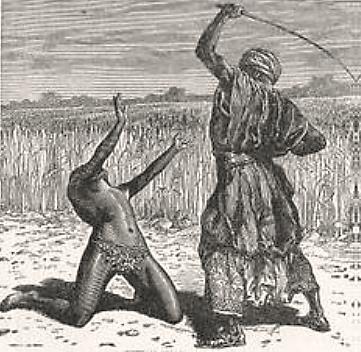
Muhammad became a religious enthusiast and came to the conclusion that since all means of persuasion were exhausted, he was now ready and determined to spread his religion by the sword, stating, “I, last of the prophets am sent with a sword
. The sword is the key to heaven and hell. All who draw it in the name of the faith will be rewarded.”
In Muhammad’s heaven, those who die for Allah’s cause will arrive there with the poor at least 500 years before the rich and will drink wine without getting drunk. Each male who is blessed will have 72 virgins as a reward.
Muhammad was now more than just an apocalyptic preacher, he also a political and military leader. His messages gradually began to change in character as seen in Islamic law based on his statements which presented non-Muslims with three options: conversion to Islam, subjugation as inferiors under Islamic law, or warfare.
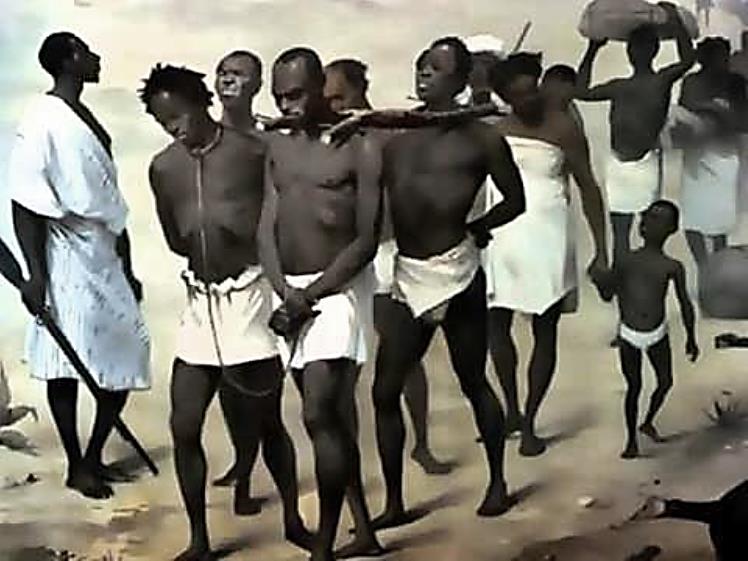
In 627 A.D. the Jews were defeated by Muhammad’s armies, and around 600 to 900 of them were captured and given the alternative of choosing either Islam or the sword. Sa'd ibn Mu'adh, a companion of Muhammad, was designated as the negotiator, and all parties had agreed to abide by his verdict. The fighters, who were devout Jews, chose death over Islam, so Sa'd ibn Mu'adh gave the order that "the men should be killed, the property divided, and the women and children taken as captives".
Muhammad approved of this ruling calling it similar to God's judgment, and proceeded to carry out his ruthless threat by beheading nearly all male members of the Jewish tribe who had reached puberty, and burying their bodies in the market place of Medina, while the women and children were sold into slavery.
After Muhammad proclaimed that he was a messenger of God, much conflict and opposition began to develop among the Quraysh tribesmen, but with a new, stronger support base in Medina, he felt more confident in challenging them. The Muslims began pillaging Quraysh caravans, with Muhammad leading many of these attacks. He began to attack their gods as well as every tribe and caravan that were travelling to Mecca with such deadly violence, that the Meccans became enraged and began to regard Islam and its prophet as a big threat, so they mobilised a large army to destroy Muhammad in revenge
These Muslim attacks on the caravans only served to accelerate their first major battle. Allah advised Muhammad's followers to
“fight fiercely and behead their enemies."
The situation became so increasingly brutal between the Muslims and the Quraysh, that Muhammad told his group of supporters: "If you were to go to Abyssinia (it would be better for you), for the king will not tolerate injustice and it is a friendly country, until such time as Allah shall relieve you from your distress." Several Muslims took his warning and left, while Muhammad remained in Mecca to try and convert the Quraysh to Islam.
In the meantime, Muhammad assembled his armies and entered Mecca but found it deserted because the inhabitants were terrified of his brutality. He then proceeded to destroy the idols but left the temple intact, so when those who had earlier fled to Abyssinia (Ethiopia) heard that their temple was not destroyed, many of them went back to Mecca and converted to his new religion, Islam.
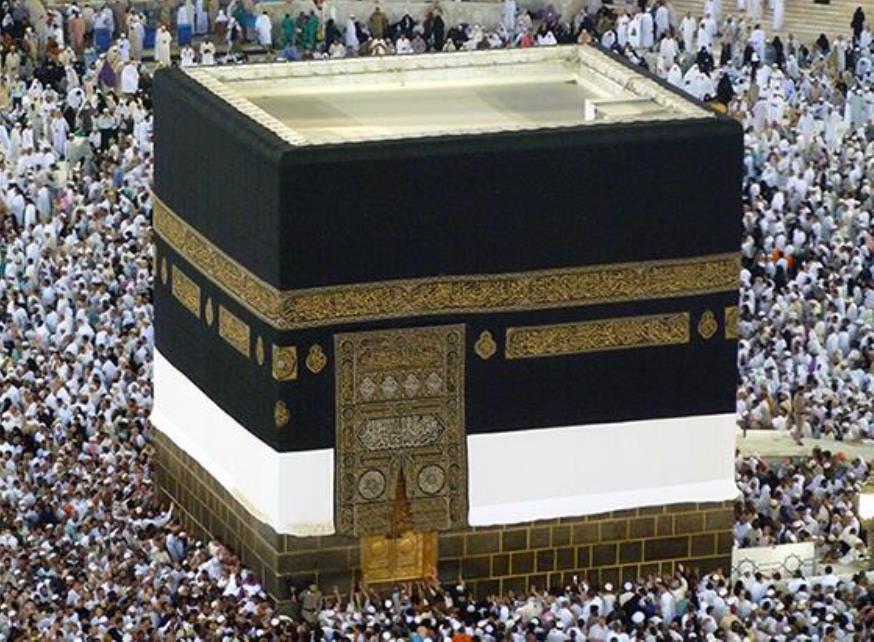
Muhammad had conquered Mecca in 630 A.D. and removed all the idols including the statue of Hubal from the Kaaba, but the Black Stone which is still considered sacred by Muslims, was left untouched. Pilgrims are required to walk around the Kaaba seven times and kiss or salute the Black Stone which is built into the wall of the Kaaba. To further win over the allegiance of the pagan Arabs, Muhammad absorbed many of their customs into his new religion. The Kaaba stone, an idol, was to receive a high status in this new religion, and the pagan temple at Mecca was to remain a holy site.
In Islamic theology, God gave man 104 revelations but only four have been preserved, namely the Pentateuch to Moses, the Psalms to David, the Gospel to Jesus, and the Quran to Muhammad. According to Muhammad, the first three have been so corrupted that they can no longer be trusted, so the Quran was given to replace them. He also declared that even though there were many prophets, he was the last and greatest one, the final messenger of God who professed the same message as all the previous prophets
.
True Biblical prophets confirm their prophetic calling when their prophecies come true within a short time, as this demonstrates divine inspiration through their foreknowledge of events, or, they are given the ability to perform miracles as validation of their prophetic status.
The Arabs in Muhammad’s time therefore demanded a miracle or some sign to confirm that he was a prophet, realizing that he did not make any specific prophecies. However, the Quran referred to him only as someone who was sent to sound a warning
.
(Sura 7:184) “Do they not reflect that their companion has not unsoundness in mind; he is only a plain warner.”
(Sura 7:188) “….I am nothing but a warner and the giver of good news to a people who believe.”
(Sura 11:12) “….Why has not a treasure been sent down upon him or an angel come with him? You are only a warner; and Allah is custodian over all things."
(Sura 13:7) "And those who disbelieve say: Why has not a sign been sent down upon him from his Lord? You are only a warner and a guide for every people.”
(Sura 29:50) “And they say: Why are not signs sent down upon him from his Lord? Say: The signs are only with Allah, and I am only a plain warner.”
However, Muhammad was unable to perform any miracles as requested by the Jews to prove his prophetic status. His response was: "I am sent only as a warner," meaning that he could not perform any miracles to corroborate his claim that he was a prophet sent by Allah.
Despite that, Muhammad continued preaching while his critics continued inquiring about his ability to perform miracles, demanding that either the mountains around Mecca be converted into gold for them, or that they be completely removed to make their farming easier. He was even challenged to send Gabriel or another angel to convince them to accept and believe in him.
As far as declaring the same message as all previous prophets is concerned, the Quran, which is supposedly the divine revelation received by Muhammad, denies the crucifixion of Jesus Christ. According to Sura 4:157: “They [the Jews] say, "We have killed the Messiah, Isa (Jesus), son of Maryam, the Rasool of Allah." Whereas in fact, neither did they kill him nor did they crucify him but they thought they did because the matter was made dubious for them. Those who differ therein are in doubt. They have no real knowledge, they follow nothing but merely a conjecture, certainly, they did not kill him (Jesus).”
Muhammad's experiences with Christian fanatical groups may explain the belief he had of Christ’s crucifixion. Muslims hold the view that Christ was taken up to Heaven alive without experiencing death because it would be unholy for God to permit one of his prophets to die in shame and disgrace, so God switched someone who looked like Christ before putting Him on the cross. The Jews therefore thought they were crucifying Christ, but it was actually the imposter who was crucified. "They slew Him not nor crucified, but it appeared so unto them." Quran (4:157).
This belief is very similar to the interpretation by some members of fanatical Christians known as Gnostics, who believed that physical matter is evil; therefore Jesus as the saviour of the world could not have taken on a physical body and hence could not have been crucified. God simply made it look as if Jesus was on the Cross, or, according to some Gnostic texts, God transformed
Judas to look like Jesus and placed Him on the Cross as the substitute for Jesus.
Therefore, according to the Muslims, Christ was not divine, neither was He crucified, that is why Muhammad admonished the Jews for boasting that they had crucified Christ: "And because of their saying: We slew the Messiah, Jesus son of Mary, Allah's messenger—they slew him not nor crucified him, but it appeared so unto them. And lo! Those who disagree concerning it are in doubt thereof; they have no knowledge thereof save pursuit of a conjecture; they slew him not for certain" (Quran 4:157).
A group of Christians even travelled from Najran to exchange theological views with Muhammad, but he became enraged because of their declaration that Jesus is the Son of God, since he often recited, "It befitteth not (the Majesty of) Allah that He should take unto Himself a son." (Quran 19:35).
However, Jesus, who is regarded as an ordinary prophet in Islam, made these statements concerning his own crucifixion.
Matthew 12:40: “For as Jonah was in the belly of the great fish three days and three nights, so the Son of Man will be in the heart of the earth three days and three nights.”
Matthew 16:21: “From then on Jesus began to point out to His disciples that He must go to Jerusalem and suffer many things from the elders, chief priests, and scribes, be killed, and be raised the third day.”
Matthew 20:17-19: “While going up to Jerusalem, Jesus took the 12 disciples aside privately and said to them on the way; "Listen! We are going up to Jerusalem. The Son of Man will be handed over to the chief priests and scribes, and they will condemn Him to death. Then they will hand him over to the Gentiles to be mocked, flogged, and crucified, and He will be resurrected on the third day."
Jesus clearly predicted his own crucifixion and not that of some imposter as suggested by the Quran.
Before the advent of Islam, Mecca was home to a variety of gods since the Meccans were polytheistic and worshipped some 360 gods in the Kaaba, which is the focal point of Islamic prayer and worship. When Muhammad began preaching his new monotheistic religion and declared all gods but Allah to be false, he and his followers began to endure persecution at the hands of the idolatrous Meccans. Muhammad began to experience difficulty in persuading the Quraysh (the tribe of Mecca) to accept that he was the final Prophet.
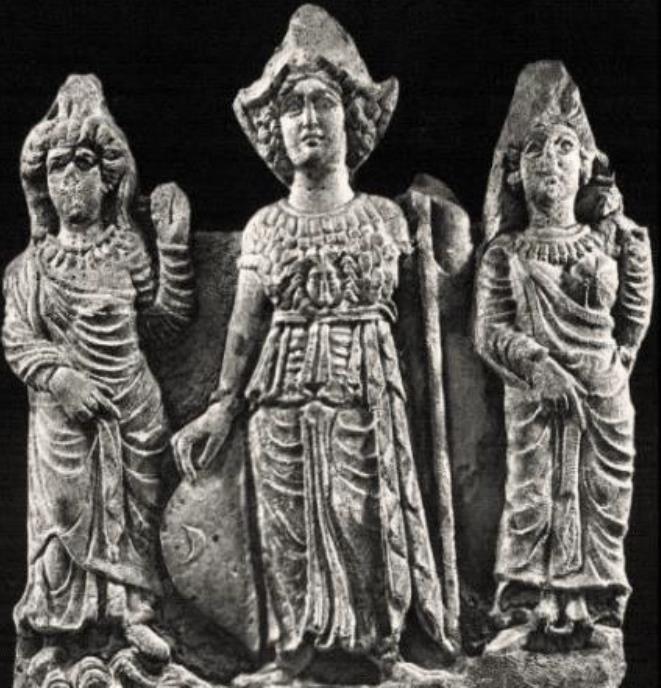
The chief of the Quraysh told Muhammad that if he would honour their goddesses; al-Lat, al-Uzza, and Manat, they in turn would worship Allah. So in an attempt to calm the Meccans down and secure some relief from persecution, Muhammad conveniently received another revelation which declared that it was legitimate for Muslims to pray to al-Lat, al-Uzza, and Manat, the three Meccan goddesses preferred by the pagan Quraysh as valid intercessors before Allah, who were also deserving of worship and whose prayers and petitions could be sought.
Muhammad then transformed these idols into the daughters of Allah, and also transformed Hubal, the chief of the 360 gods worshiped in the Kaaba into Allah, who then became the god of the Quran. Al-Lat in her three forms was influenced by the three daughters of Baal who was the supreme deity of the Canaanites.
Muhammad’s earliest biographer recorded; "When the Quraysh [Meccans] heard that, they were delighted and greatly pleased at the way in which he spoke of their gods, and they listened to him." So by acknowledging the three Meccan deities, the Quraysh
accepted Muhammad and his new religion, therefore what he had longed for was finally accomplished.
The Islamic explanation as to why Muhammad accepted the idols was that he wanted a strategy through which he could appeal to and attract the Quraysh, but Satan used the opportunity to put those false words on Muhammad’s lips.
The Islamic accounts then declared that the angel Gabriel rebuked Muhammad for what he said, announcing that Allah did not put those words in his mouth, but Satan did. “Then Gabriel came to the apostle and said, "What have you done, Muhammad? You have read to these people something I did not bring you from God and you have said what He did not say to you." (Ibn Ishaq
pg 166).
Those were known as the Satanic Verses. Muhammad soon confessed: “I ascribed to Allah, what He had not said.” (Ibn Sa'd, Vol. 1, 237). “I have fabricated things against God and have imputed to Him words which He has not spoken”. (The History of al-Tabari, Vol. 6, 108-111).
Later on, Muhammad declared that Gabriel had instructed him to speak out against the idols, and this caused him to go back to his original doctrine of one supreme God, but this only served to ignite further tensions among the Quraysh. When the voiding of what Satan had put on Muhammad's tongue came from Allah, the Quraysh responded: "Muhammad has repented of what he said about the position of your gods with Allah, altered it and brought something else." Ibn Ishaq pointed out that this incident was used against Muhammad by the Quraysh.
There are two basic standards by which a false prophet can be identified. One who assigns words to God that are not given by God; and one who speaks in the name of other gods.
Deuteronomy 18:20 states: “But the prophet who dares to speak in My name a message I have not commanded him to speak, or who speaks in the name of other gods that prophet must die.”
Muhammad had spoken in the name of other false gods when he acknowledged al-Lat, al-Uzza, and Manat
as three valid deities who deserved worship, and whose mediation could be sought. He had also attributed words to God which God did not command him to speak, and by his own admission stated, "I have fabricated things against God and have imputed to Him words which He has not spoken." (The History of al-Tabari, Vol. 6, pages 108-111).
Since the Quran was revealed by a false prophet who lacked the ability to discern if a revelation came from God or from Satan, should it not be rejected as the word of God?

© John Moore (Oct. 2017) ©. All rights reserved.